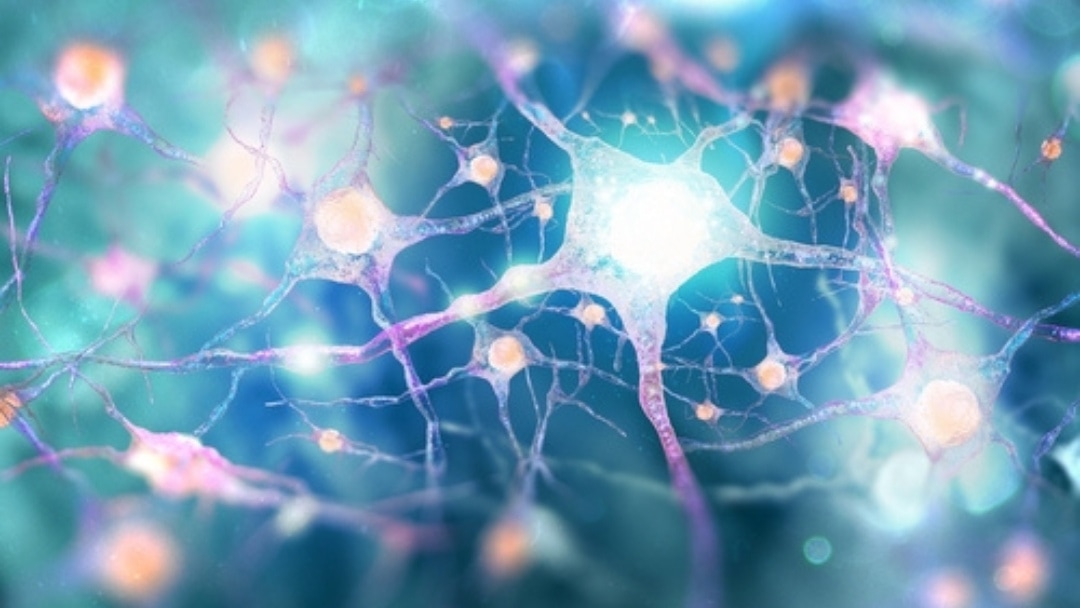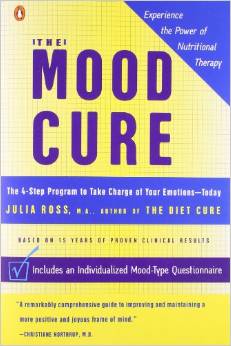We interviewed James Greenblatt MD about nutritional supplementation for neurodevelopmental and mood disorders. You can watch the replay below. Please note that you will be asked to provide your email address after 30 minutes of viewing to continue watching the replay.
Dr. Greenblatt is well known for his functional-medicine approach to psychiatry, which means addressing root causes such as nutritional deficiencies, inflammation, toxicity, immune dysregulation, gut dysbiosis and more.
By using interventions such as special diets, specific genetic testing such as for the MTHFR mutation, specific laboratory tests such as the Organic Acid Test (OAT), and individualized treatment with supplements such as omega-3 fatty acids, amino acids and lithium orotate, he has helped countless people improve their symptoms from conditions such as:
- Mood and anxiety disorders
- Eating disorders, including anorexia nervosa
- Behavioral disorders
- Psychosis
- Schizophrenia
- OCD
- Self-injury
- Suicide risk
- ADHD
- Fatigue
- Insomnia
About Nutritional Supplementation
In this webinar, Dr. Greenblatt discussed:
- Typical causes of nutritional deficiencies:
- Standard American Diet
- Toxicity
- Malabsorption issues, such as celiac disease and gut dysbiosis
- Pyrroluria
- Genetic/epigentic factors
- What is the best way to test for potential nutritional deficiencies?
- How can nutritional supplementation help children with autism, ADD/ADHD, Sensory Processing Disorder, PANS/PANDAS and mood disorders?
- Could children with these disorders benefit from supplementation with:
- Neurotransmitters/amino acids
- Magnesium
- Lithium orotate
- Vitamin B12
- 5-HTP
- Zinc
- Vitamin D
- Omega-3 fatty acids such as DHA and EPA
About James Greenblatt MD
A pioneer in the field of integrative medicine, James M. Greenblatt, MD, has treated patients since 1988. After receiving his medical degree and completing his psychiatry residency at George Washington University, Dr. Greenblatt completed a fellowship in child and adolescent psychiatry at Johns Hopkins Medical School.
Dr. Greenblatt currently serves as the Chief Medical Officer at Walden Behavioral Care in Waltham, MA and serves as an Assistant Clinical Professor of Psychiatry at Tufts University School of Medicine and Dartmouth College Geisel School of Medicine.

An acknowledged integrative medicine expert, educator, and author, Dr. Greenblatt has lectured internationally on the scientific evidence for nutritional interventions in psychiatry and mental illness. Through three decades of practice and research, Dr. Greenblatt is a leading contributor to helping physicians and patients understand the role of personalized medicine for mental illness.
In April of 2017, Dr. Greenblatt was inducted into the Orthomolecular Medicine Hall of Fame by the International Society of Orthomolecular Medicine.
He is the author of seven books, including Finally Focused: The Breakthrough Natural Treatment Plan for ADHD; Nutritional Lithium: A Cinderella Story; Answers to Anorexia; Integrative Medicine for Alzheimer’s; Integrative Medicine for Binge Eating; and Integrative Medicine for Depression; and co-editor with Kelly Brogan, MD, of the textbook Integrative Therapies for Depression.
Dr. Greenblatt is the founder of Psychiatry Redefined, an educational platform dedicated to the transformation of psychiatry. Psychiatry Redefined offers online CME-approved courses, webinars, and fellowships for professionals to learn about functional and integrative medicine for mental illness. To learn more, please visit www.JamesGreenblattMD.com.
Disclaimer
This webinar is not a substitute for medical advice, treatment, diagnosis, or consultation with a medical professional. It is intended for general informational purposes only and should not be relied on to make determinations related to treatment of a medical condition. Epidemic Answers has not verified and does not guaranty the accuracy of the information provided in this webinar.
Still Looking for Answers?
Visit the Epidemic Answers Practitioner Directory to find a practitioner near you.
Join us inside our online membership community for parents, Healing Together, where you’ll find even more healing resources, expert guidance, and a community to support you every step of your child’s healing journey.
Sources & References
Atladottir, H.O., et al. The increasing prevalence of reported diagnoses of childhood psychiatric disorders: a descriptive multinational comparison. Eur Child Adolesc Psychiatry. 2015;24(2):173-83.
Arnold, P.D., et al. Is obsessive-compulsive disorder an autoimmune disease? Canadian Medical Association Journal. 2001 Nov 13;165(10):1353-8.
Berk, M., et al. So depression is an inflammatory disease, but where does the inflammation come from? BMC Med. 2013;11:200.
Berry, E.A., et al. National estimates of the inpatient burden of pediatric bipolar disorder in the United States. J Ment Health Policy Econ. 2011;14(3):115-23.
Bayer, J.K., et al. The Cool Little Kids randomised controlled trial: population-level early prevention for anxiety disorders. BMC Public Health. 2011;11:11.
Bitsko, R.H., et al. Epidemiology and Impact of Health Care Provider-Diagnosed Anxiety and Depression Among US Children. J Dev Behav Pediatr. 2018 Apr 24.
Bonnot, O., et al. Children and adolescents with severe mental illness need vitamin D supplementation regardless of disease or treatment. J Child Adolesc Psychopharmacol. 2011;21(2):157-61.
Bora, S.A., et al. Regulation of vitamin D metabolism following disruption of the microbiota using broad spectrum antibiotics. J Nutr Biochem. 2018 Jun;56:65-73.
Bravo, J.A., et al. Ingestion of Lactobacillus strain regulates emotional behavior and central GABA receptor expression in a mouse via the vagus nerve. Proc Natl Acad Sci U S A. 2011 Sep 20;108(38):16050-5.
Camilleri, M. Serotonin in the gastrointestinal tract. Curr Opin Endrocrinol Diabetes Obes. 2009 Feb;16(1):53-9.
Ceylan, M.F., et al. Lipid peroxidation markers in children with anxiety disorders and their diagnostic implications. Redox Rep. 2014;19(2):92-6.
Cohen-Cline, H., et al. Access to green space, physical activity and mental health: a twin study. J Epidemiol Community Health. 2015 Jun;69(6):523-9.
Costello, E.J., et al. 10-year research update review: the epidemiology of child and adolescent psychiatric disorders: II. Developmental epidemiology. J Am Acad Child Adolesc Psychiatry. 2006 Jan;45(1):8–25.
Darling, A.L., et al. Association between maternal vitamin D status in pregnancy and neurodevelopmental outcomes in childhood: results from the Avon Longitudinal Study of Parents and Children (ALSPAC). Br J Nutr. 2017 Jun;117(12):1682-1692.
Dusetzina, S.B., et al. Treatment use and costs among privately insured youths with diagnoses of bipolar disorder. Psychiatr Serv. 2012;63(10):1019-25.
Guney, E., et al. Oxidative stress in children and adolescents with anxiety disorders. J Affect Disord. 2014;156:62-6.
Hertz-Picciotto, I., et al. Organophosphate exposures during pregnancy and child neurodevelopment: Recommendations for essential policy reforms. PLoS Med. 2018 Oct 24;15(10):e1002671.
Karakula, H., et al. [Does diet affect our mood? The significance of folic acid and homocysteine]. Pol Merkur Lekarski. 2009;26(152):136-41.
Kawatani, M., et al. Evaluation of oxidative stress status in children with pervasive developmental disorder and attention deficit hyperactivity disorder using urinaryspecific biomarkers. Redox Rep. 2011;16(1):45-6.
Kelly, J.R., et al. Breaking down the barriers: the gut microbiome, intestinal permeability and stress-related psychiatric disorders. Front Cell Neurosci. 2015 Oct 14;9:392.
Leuchter, A.F., et al. Intermediate phenotypes and biomarkers of treatment outcome in major depressive disorder. Dialogues Clin Neurosci. 2014;16(4):525-37.
Lionetti, E., et al. Gluten Psychosis: Confirmation of a New Clinical Entity. Nutrients. 2015 Jul 8;7(7):5532-9.
Ludlow, A.K., et al. Understanding the impact of diet and nutrition on symptoms of Tourette syndrome: A scoping review. J Child Health Care. 2018 Mar;22(1):68-83.
Mahmoud, M.M., et al. Zinc, ferritin, magnesium and copper in a group of Egyptian children with attention deficit hyperactivity disorder. Ital J Pediatr. 2011;37:60.
Marazziti, D., et al. Psychiatric disorders and mitochondrial dysfunctions. Eur Rev Med Pharmacol Sci. 2012;16(2):270-5.
Memon, A., et al. Association between naturally occurring lithium in drinking water and suicide rates: systematic review and meta-analysis of ecological studies. British Journal of Psychiatry. 2020 Dec; 217(6): 667-678.
Millichap, J.G., et al. The diet factor in attention-deficit/hyperactivity disorder. Pediatrics. 2012 Feb;129(2):330-7.
Mitchell, E.S., et al. B vitamin polymorphisms and behavior: evidence of associations with neurodevelopment, depression, schizophrenia,bipolar disorder and cognitive decline. Neurosci Biobehav Rev. 2014;47:307-20.
Morris, C.R., et al. Syndrome of allergy, apraxia, and malabsorption: characterization of a neurodevelopmental phenotype that responds to omega 3 and vitamin E supplementation. Alternative Therapies in Health and Medicine. Jul-Aug 2009;15(4):34-43.
Mossin, M.H., et al. Inverse associations between cord vitamin D and attention deficit hyperactivity disorder symptoms: A child cohort study. Aust N Z J Psychiatry. 2017 Jul;51(7):703-710.
Ostiguy, C.S., et al. Sensitivity to stress among the offspring of parents with bipolar disorder: a study of daytime cortisol levels. Psychol Med. 2011;41(11):2447-57.
Rollins, B., et al. Mitochondrial variants in schizophrenia, bipolar disorder, and major depressive disorder. PLoS One. 2009;4(3):e4913.
Rollins, B., et al. Mitochondrial variants in schizophrenia, bipolar disorder, and major depressive disorder. PLoS One. 2009;4(3):e4913.
Rook, G.A., et al. Microbiota, immunoregulatory old friends and psychiatric disorders. Adv Exp Med Biol. 2014;817:319-56.
Scassellati, C., et al. Biomarkers and attention deficit/hyperactivity disorder: a systematic review and meta-analyses. J Am Acad Child Adolesc Psychiatry. 2012;51(10):1003-19 e20.
Spartz, E.J., et al. Course of Neuropsychiatric Symptoms After Introduction and Removal of Nonsteroidal Anti-Inflammatory Drugs: A Pediatric Observational Study. J Child Adolesc Psychopharmacol. 2017 Jul 11.
Sucksdorff, M., et al. Maternal Vitamin D Levels and the Risk of Offspring Attention-Deficit/Hyperactivity Disorder. J Am Acad Child Adolesc Psychiatry. 2019 Dec 18.
Taurines, R., et al. Expression analyses of the mitochondrial complex I 75-kDa subunit in early onset schizophrenia and autism spectrum disorder: increased levels as a potential biomarker for early onset schizophrenia. Eur Child Adolesc Psychiatry. 2010 May;19(5):441-8.
Thompson, L., et al. What have birth cohort studies asked about genetic, pre- and perinatal exposures and child and adolescent onset mental health outcomes? A systematic review. Eur Child Adolesc Psychiatry. 2010;19(1):1-15.
Toufexis, M.D., et al. Disordered eating and food restrictions in children with PANDAS/PANS. J Child Adolesc Psychopharmacol. 2015 Feb;25(1):48-56.
Van Meter, A.R., et al. What goes up must come down: the burden of bipolar depression in youth. J Affect Disord. 2013;150(3):1048-54.
Verlaet, A.A., et al. Nutrition, immunological mechanisms and dietary immunomodulation in ADHD. Eur Child Adolesc Psychiatry. 2014;23(7):519-29.
Wang, H.L., et al. Case-Control Study of Blood Lead Levels and Attention Deficit Hyperactivity Disorder in Chinese Children. Environmental Health Perspectives. 2008 Oct;116(10):1401-6.
Warner, B.B. The contribution of the gut microbiome to neurodevelopment and neuropsychiatric disorders. Pediatr Res. 2019 Jan;85(2):216-224.
Winter, C., et al. Dopamine and serotonin levels following prenatal viral infection in mouse—implications for psychiatric disorders such as schizophrenia and autism. European Neuropsychopharmacology. 2008 Oct;18(10):712-6.
Yang, B., et al. Effects of regulating intestinal micobiota on anxiety symptoms: A systematic review. General Psychiatry. 2019; 32: e100056.
Resources
Books
Bock, Kenneth. Brain Inflamed: Uncovering the Hidden Causes of Anxiety, Depression, and Other Mood Disorders in Adolescents and Teens. 2021, Harper Wave.
Brogan, Kelly. A Mind of Your Own: The Truth About Depression and How Women Can Heal Their Bodies to Reclaim Their Lives. 2016, Harper Thorsons.
Greenblatt, James M. Answers to Anorexia: A Breakthrough Nutritional Treatment That is Saving Lives. 2010, Sunset River Press.
Greenblatt, James M. Finally Focused: The Breakthrough Natural Treatment Plan for ADHD That Restores Attention, Minimizes Hyperactivity, and Helps Eliminate Drug Side Effects. 2017, Harmony.
Greenblatt, James M. Integrative Medicine for Alzheimer’s: The Breakthrough Natural Treatment Plan That Prevents Alzheimer’s Using Nutritional Lithium. 2018, FriesenPress.
Greenblatt, James M. Integrative Medicine for Binge Eating: A Comprehensive Guide to the New Hope Model for the Elimination of Binge Eating and Food Cravings. 2019, FriesenPress.
Greenblatt, James M. Integrative Medicine for Depression: A Breakthrough Treatment Plan that Eliminates Depression Naturally. 2019, FriesenPress.
Greenblatt, James M. (ed.) and Brogan, Kelly (ed). Integrative Therapies for Depression: Redefining Models for Assessment, Treatment and Prevention. 2015, CRC Press.
Greenblatt, James M. and Grossman, Kayla. Nutritional Lithium: A Cinderella Story: The Untold Tale of a Mineral That Transforms Lives and Heals the Brain. 2016, CreateSpace Independent Publishing Platform.
Lambert, Beth, et al. Brain Under Attack: A Resource for Parents and Caregivers of Children with PANS, PANDAS, and Autoimmune Encephalitis. 2018, Answers Publications.
Ross, Julia. The Mood Cure: The 4-Step Program to Take Charge of Your Emotions–Today. 2003, PenguinLife.
James Greenblatt MD Webinars for the Great Plains Laboratories
Adolescent Self-Injury And Suicide Prevention
Amino Acid Precursors In The Treatment Of Depression And Anxiety
Case Studies In Integrative Mental Health
Dietary Influences On Behavior Problems In Children
Exploring The Role Of Folate And MTHFR Testing In Psychiatry – The Hype And The Hope
How Gut Bacteria Affects Mood, Anxiety, And Weight- Research And Clinical Implications
Inflammation And Neuropsychiatric Illness: Treatment And Testing Protocols
An Integrative Approach To The Treatment Of Anorexia Nervosa
Integrative Approach To Treating Fatigue And Insomnia
Integrative Medicine For Appetite Control
Integrative Medicine For Eating Disorders
Integrative Medicine For Mood And Anxiety Disorders
Integrative Medicine For OCD And Anxiety Disorders
Integrative Medicine For Psychosis And Schizophrenia
Integrative Medicine For The Treatment Of Eating Disorders
Integrative Medicine For The Treatment Of Mood Disorders
Integrative Medicine Is Personalized Medicine
Integrative Therapies For Mental Illness – Case Studies
Integrative Therapies For The Treatment Of ADHD
Integrative Therapies For Obsessive Compulsive Disorder
Integrative Treatments For Behavioral Problems In Children
Introduction To Integrative Medicine For Mental Health
Low Dose Lithium For The Treatment Of Mood, Behavioral, And Cognitive Disorders
Neuroactive Peptides From Common Foods Contribute To Psychiatric Disorders
Nutritional Risk Factors In Predicting Suicide Risk
Nutritional Support For Antidepressant Withdrawal
Orthomolecular Approaches In The Treatment Of Pediatric And Adult Obsessive Compulsive Disorder
The Role Of Heavy Metals In Psychiatric Disorders
The Role Of Phytochemicals In The Treatment Of Depression
Understanding The Role Of Amino Acids In The Treatment Of Mental Health
Utilizing Nutritional Strategies With The Use Of Antidepressants



